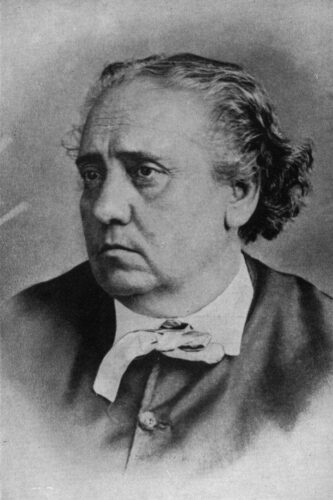“Wikipedia is my go-to first source for information presented logically and accessibly,” said Liz Shesko, an Associate Professor of history at Oakland University. But before last term, she didn’t think of it as a teaching tool. Using Wiki Education’s assignment templates and Dashboard, Liz had students write Wikipedia content that related to the history of Argentina, Brazil, and Chile from independence until the end of the Cold War. Students added information about the construction of the Central Argentine Railway, the dark activities of the Navy Petty-Officers School under military dictatorship, feminism among working class women in Argentina, the history of LGBT rights in Brazil in the 20th century, and more.
In reflections at the end of the term, students noted that the nontraditional assignment had them think outside of the box and beyond the classroom. “The accessibility of Wikipedia was a large part of why I am so glad to have done this project,” said one student. “I really appreciated having done something tangible and somewhat permanent that contributes in a positive way. Most projects I have done in other classes have existed almost in a vacuum, in that once it’s been written and graded, no one ever looks at it again. While the page I worked on may not be one of the most frequently visited ones, I was still able to contribute to the overall knowledge within Wikipedia.”
“After completing the project, I felt proud of myself knowing my work will be seen by others besides my professor,” said another student. “It is rewarding to know that my contribution to Wikipedia will benefit others rather than just my grade in the class. Doing the Wikipedia assignment also is a humbling experience that truly allowed me to value my education even further. I have honestly taken for granted the resources that I have had access to as a college student. It was fulfilling to know that thanks to my work I have allowed others to learn free of cost from resources that they would not have access to otherwise.”

Given the reach that their work will have, students also felt an increased sense of responsibility to get it right. “Working on Wikipedia made me think, almost a little existentially, how my own information and research can affect what is known about a topic,” wrote one student, who expanded the biography for Argentine feminist Juana Paula Manso. “My role in the online information landscape on this particular Wikipedia article was about giving the world a little more knowledge about an important figure that, so far as Wikipedia was concerned, was not well known because of how little was written on her existing page.”
Before the student worked on the biography, it was just three sentences long and received a steady stream of readers. Now, the article has 7xs the amount of citations it had before thanks to this student, the majority of which cite journal articles behind paywalls. The article still gets the same amount of traffic, but now readers have a much fuller picture of Juana’s life. The student has effectively freed that information for all readers in the future. “It’s a little scary, thinking on it now, that since my contribution is the majority—if not all—of what is on that page, if someone were to take my information and skew it, or misread it, I would be responsible if I accidentally used a bad source,” the student added.
While thinking critically about what sources are “reliable”, students also gained skills to synthesize information in their own words, retaining more course content in the process.
“Wikipedia is extremely touchy about sourcing: you can’t quote or paraphrase, and of course outright plagiarism is not allowed,” wrote another student. “But being forced to put everything I learned in my own words was a new experience for me, since I have been so used, in my other classes, to being allowed to quote amply so long as I was able to analyze the information in my own words after. Now, after having to source this way in Wikipedia, I’ve found that I have steered clear of sources that I didn’t understand enough to put in my own words; I have become less reliant on making other authors’ quotes do my writing for me and I have found it easier to make sure my quotes are supporting my own words on a topic.”
As for how students thought this assignment compared to the more traditional term paper, another student said: “I believe I learned about as much as I would have from doing a paper instead of a Wikipedia article, but I think I learned it very differently than I would have: I’ve honestly found that I can still remember, very clearly, the information I put on my article because I had to write everything in my own words—I can’t say I’ve ever remembered this much information from a typical term paper before, so in that way I think this project was extremely beneficial to the way I learned more about Latin America.”
To incorporate an assignment like this into your next course, visit teach.wikiedu.org for our free assignment templates, dashboard, and support.
Thumbnail image is Navy Mechanics School Ave. de Libertador by David, CC BY 2.0 via Wikimedia Commons.
